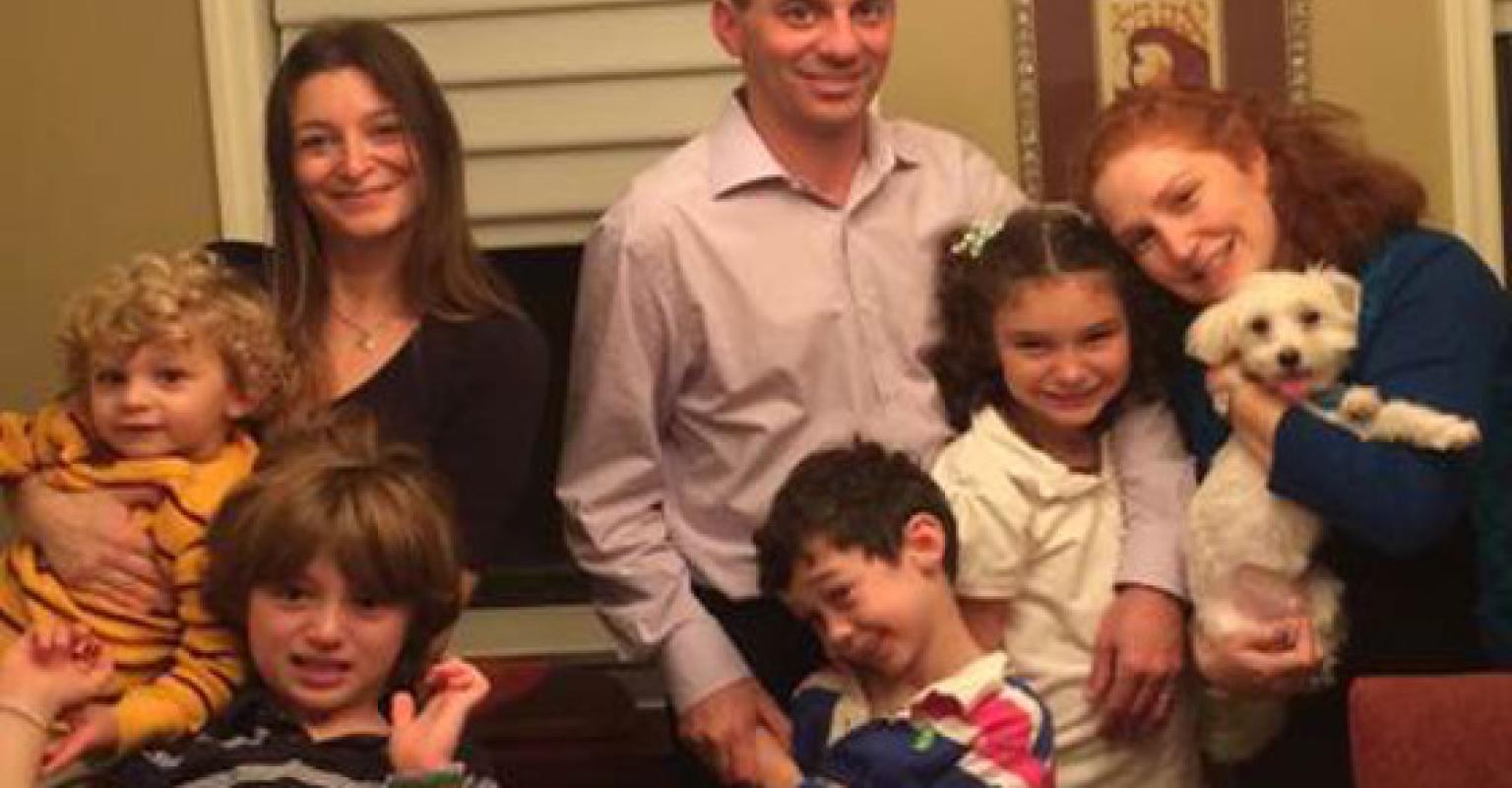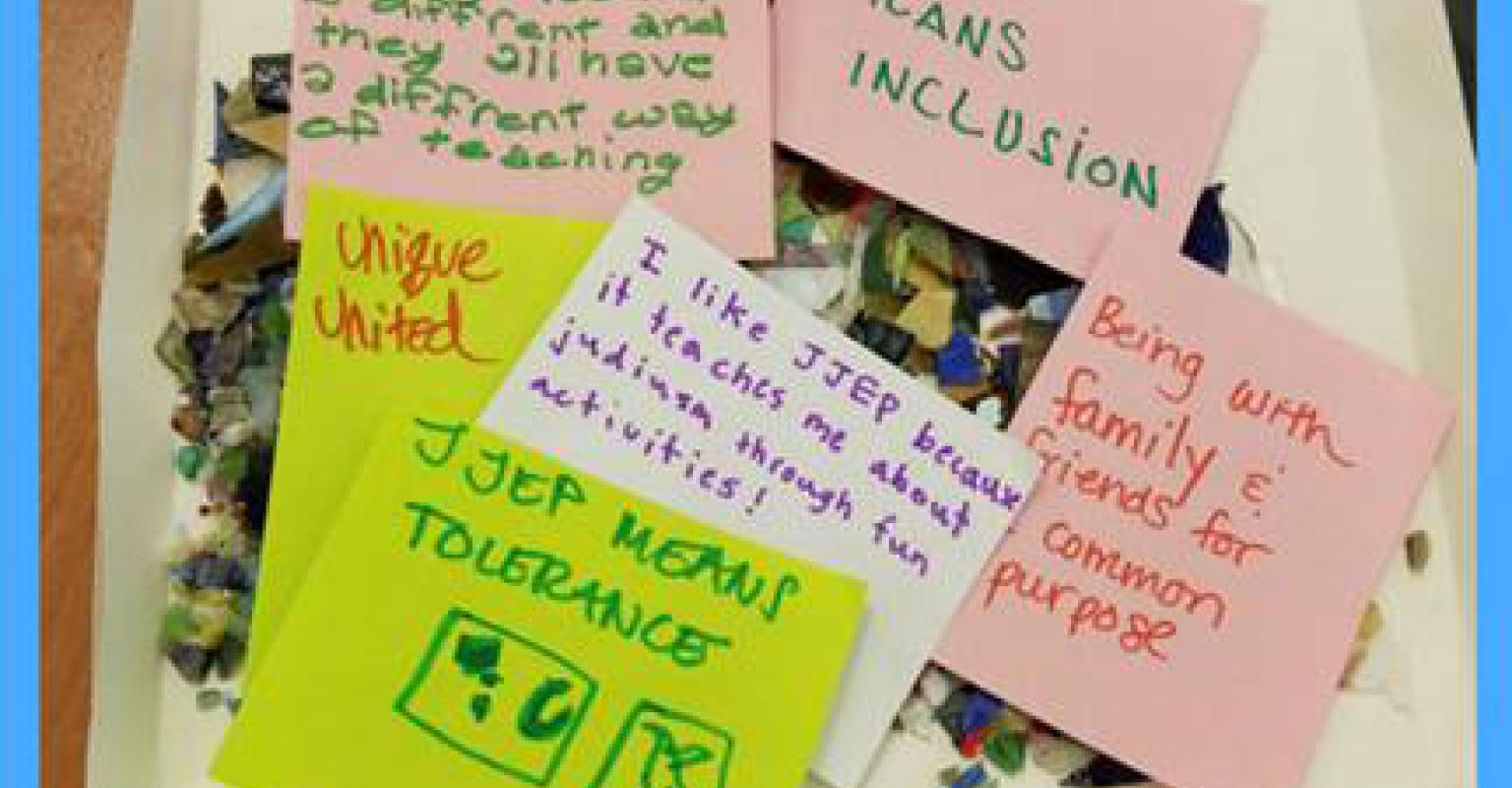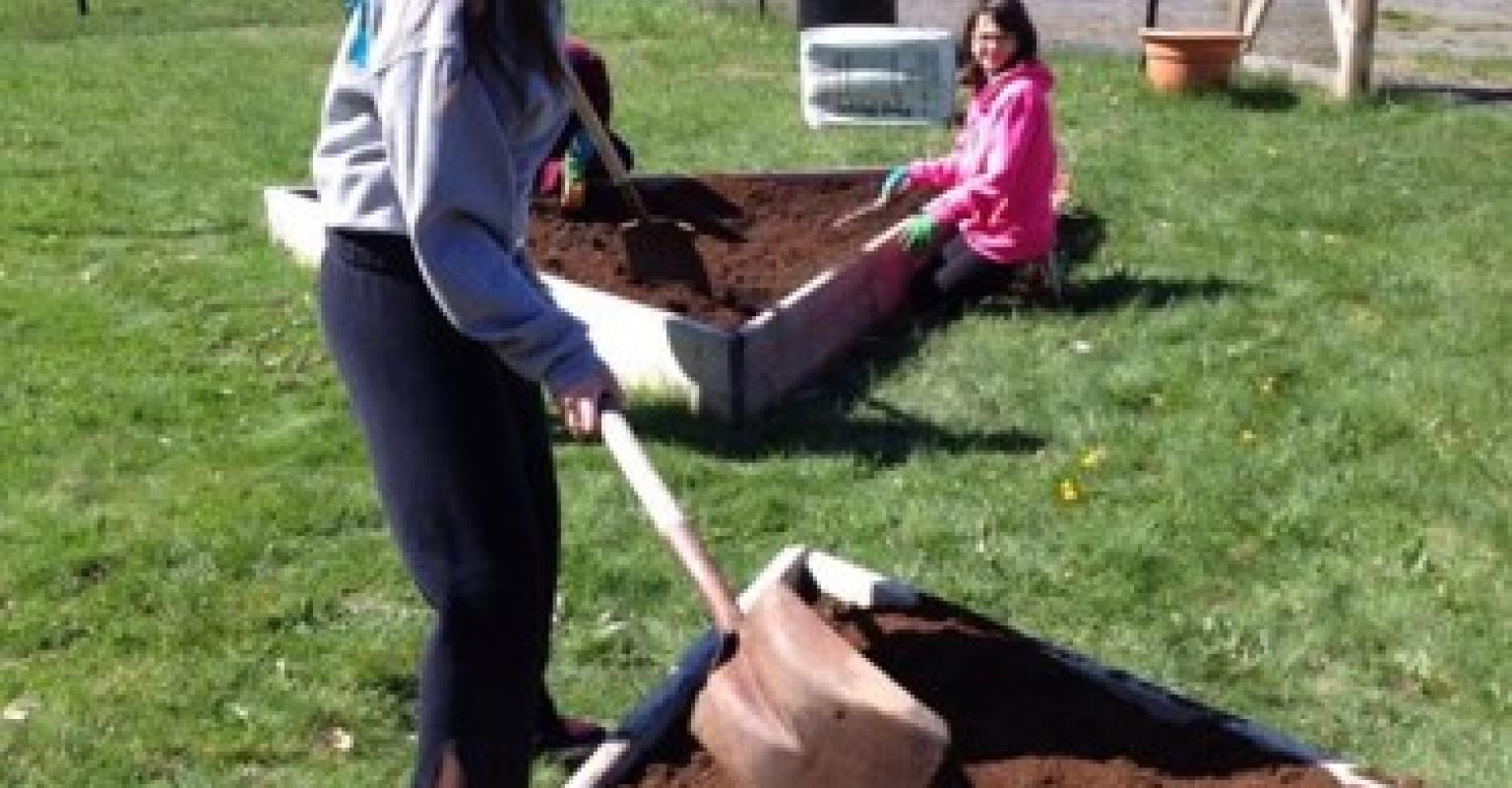Organization Name:
Judaism Your Way
Program Name:
Open Tent Be Mitzvah
Location:
Denver and Boulder, CO
Program Website:
https://www.judaismyourway.org/open-tent-be-mitzvah/
Grades of Participants:
6th, 7th, 8th
Number of Participants:
76-100
Target Audience:
The Open Tent Be Mitzvah program serves all students who are interested in a unique coming of age program. Historically, Open Tent Be Mitzvah has served students who are in interfaith/mixed heritage families (who make up a high percentage of the organization's families), neurodivergent learners, students of color, students for whom English is their second language, and students who have no Jewish educational background. While they do not target any one type of student they tend to get students from families who were not previously engaged in Jewish educational programs.
Schedule:
Year 1: 6th and/or 7th grade students meet once a week from 4:30-6 pm (generally T, W, or Th)
Year 2: 7th and/or 8th grade students meet every other week for 90 minutes either in the afternoon or evening.
Open Tent Be Mitzvah also offers a Mentorship program, which meets one-on-one for 45 min every other week.
The Program Space: Judaism Your Way does not own a building, so they rent space from other locations. They look for spaces that have access to a kitchen as well as access to outdoor spaces. They also look for spaces that make it possible to utilize technology, so they seek out smart classrooms, or access to smart TVs. The experiential curriculum works best when the space is flexible and can be set up in a variety of ways.
Staff:
Open Tent Be Mitzvah relies on Judaism Your Way's full-time staff members teaching in the program. They have 2 full time and 5 part-time educators and 1 full-time and 1 part-time administrator.
Goals/Guiding Values
1. Students develop the tools to explore Judaism and themselves.
2. Students learn there are many "right" ways to do Jewish and feel empowered to choose what feels meaningful to them.
3. Students feel they belong in the program, in their family and in the greater Jewish world.
4. Students feel seen and known for being their own unique selves and that they are perfect exactly the way they are.
Origin Story
Open Tent Be Mitzvah initially emerged from a need to add Be Mitzvah to Judaism Your Way's existing menu of lifecycle options, beginning as a 1:1 mentorship program between the founding Rabbi and families looking for a coming of age experience in their community, gradually expanded into its current form.
Families come to Judaism Your Way looking for a welcoming, inclusive Jewish connection. Their approach is to say yes to families who may have been told no in other Jewish settings. The program values the Torah of inclusion, emphasizing the idea that there are many right ways to do and be Jewish, and Jewish wisdom can be found in many different forms. Students make choices throughout the program that fit their goals - what language(s) they want to use, where they want to draw wisdom, what aspects of Judaism they want to explore and how they want to share this wisdom with their guests. There are very few "requirements" that students must follow; rather, they pursue what is exciting and inspiring for them.
Creating Jewish Community
Open Tent Be Mitzvah is intentionally structured to build community. They offer team building activities specially designed to promote safe space and learning. They also emphasize community by focusing on earning Jewish history and story, culture, and an experiential curriculum tied to core middot.
Creating Content-rich and Accessible Learning
Open Tent Be Mitzvah takes the approach that Jewish literacy is about figuring out which ways you want to do and be Jewish. They teach Torah, holidays, Mensch-ology (their word for the study of being a good person), Prayer/Blessing, G-d, and Jewish time. All of these topics are introduced in ways that encourage students to consider what it all means to them.
Creating Values-Based Learning
We want them to connect by doing, listening, acting, cooking, creating, writing, and speaking.
Creating Life-Relevant Learning
Educators initially share with students Mordechai Kaplan's Belief, Belonging Behavior Triangle, and teacy that behaviors are just one way someone can be Jewish. Students choose the behaviors that resonnate with them: They have opportunities to try out a myriad of behaviors. Some examples include participation in a Tu B'shevat Seder, opportunities for Tikkun Olam, cooking a wide variety of Jewish foods (including Sephardi and Mizrachi recipes), and reading from Torah. The expansive approach also includes opportunities outside of class like Kabbalat Shabbat family pot lucks and family havdalah rituals to bring the whole family into the experience.
A Story of Our Program at its Best:
A student who uses they/them pronouns felt strongly that their ceremony should be living and teaching values of justice, equity, diversity, inclusion and celebration. They focused on ensuring their immediate community had a safe space and a place for allies to learn how to be supportive. Then, they wanted to teach these lessons to their guests. Our students write and then lead their own ceremonies using language and examples that resonate with them. For their d'var Torah, the student wrote and recorded a script that was based on true stories of oppression and redemption. An ice skater, the student choreographed a skating performance to further interpret the stories. This student wove more common elements of a Be Mitzvah like saying prayers in Hebrew with additions that resonated more with them, creating a unique coming of age experience that was meaningful and powerful not only for the student but for their guests as well.
Sample Lesson Plan:
Click here
Additional Reading:
Click here



